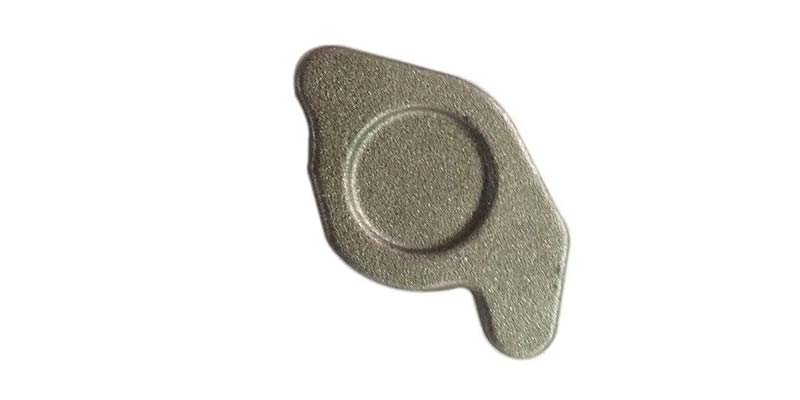- Contact Innally, Let you purchase forgings in China more favorable prices, products more assured!
- Hotline:+(86)15038323776 Email:innally@innally.com
Material selection of agricultural machinery forgings: meet the dual considerations of performance and economy
- Category: Metal forging, Titanium alloy forging
- |
- Date: 26/12/2023
To sum up, the selection of suitable agricultural machinery forging materials needs to consider the performance requirements and economic factors. According to the specific application scenarios and needs, the appropriate materials can be selected to meet the performance requirements, while reducing production costs and improving economic benefits.
Product Details
In the production process of agricultural machinery forgings, the choice of materials is very important. It not only affects the performance of forgings, but also directly affects the production cost. This article will discuss the various factors that need to be considered in the selection of agricultural machinery forging materials to ensure that the dual considerations of performance and economy are met.
First, material performance requirements
Strength: Forgings need to have a certain strength to withstand various stresses during the working process. The selection of high-strength materials can reduce the thickness of the forging, thereby reducing the weight and improving the economic benefit.
Toughness: The toughness of a material determines its ability to resist breaking when subjected to impact loads. For agricultural machinery forgings that often bear impact loads, it is particularly important to choose materials with good toughness.
Corrosion resistance: In agricultural environments, forgings are susceptible to corrosion. Therefore, choosing materials with strong corrosion resistance can extend the service life of forgings.
Processing performance: Good processing performance can reduce production costs and improve production efficiency. Choosing materials that are easy to process can help simplify the production process and reduce manufacturing costs.
Second, economic considerations

Material cost: Material cost is an important factor in determining the production cost of forgings. On the premise of meeting the performance requirements, materials with lower cost should be selected as far as possible.
Procurement difficulty: Some special materials may be more difficult to procure, resulting in longer procurement cycles and increased costs. Therefore, when selecting materials, it is necessary to consider their market supply and procurement difficulty.
Recycling: For agricultural machinery forgings, recycling can reduce production costs and reduce environmental pollution. Choosing materials that can be recycled helps to achieve sustainable development goals.
Third, common agricultural machinery forging materials
Carbon steel: Carbon steel is a commonly used agricultural machinery forgings material, has good strength and toughness, and the cost is relatively low. However, the corrosion resistance of carbon steel is poor and it needs to be treated with rust prevention.
Stainless steel: Stainless steel has excellent corrosion resistance and is suitable for agricultural machinery forgings used in corrosive environments. However, the cost of stainless steel is high and the processing is difficult.
Alloy steel: Alloy steel is added on the basis of carbon steel alloy elements, with high strength, high toughness, good corrosion resistance and other advantages. But alloy steel is also relatively costly.
To sum up, the selection of suitable agricultural machinery forging materials needs to consider the performance requirements and economic factors. According to the specific application scenarios and needs, the appropriate materials can be selected to meet the performance requirements, while reducing production costs and improving economic benefits.
nannan
INNALLY website editing, to provide you with forging related information
Related Products
Search
Forging center
- Steel forgings
- Aluminium alloy forging
- Titanium alloy forging
- Stainless steel forging
- Copper forging
- Automotive forgings
- Locomotive forging
- Bicycle forgings
- Motorcycle forging
- Rigging and fasteners
- Bearing forging
- Electric power fittings
- Marine forging
- Mechanical forgings for metalworking
- Mining machinery forgings
- Marine engineering forgings
- Construction machinery forgings
Popular product

© 2025. All Rights Reserved.






